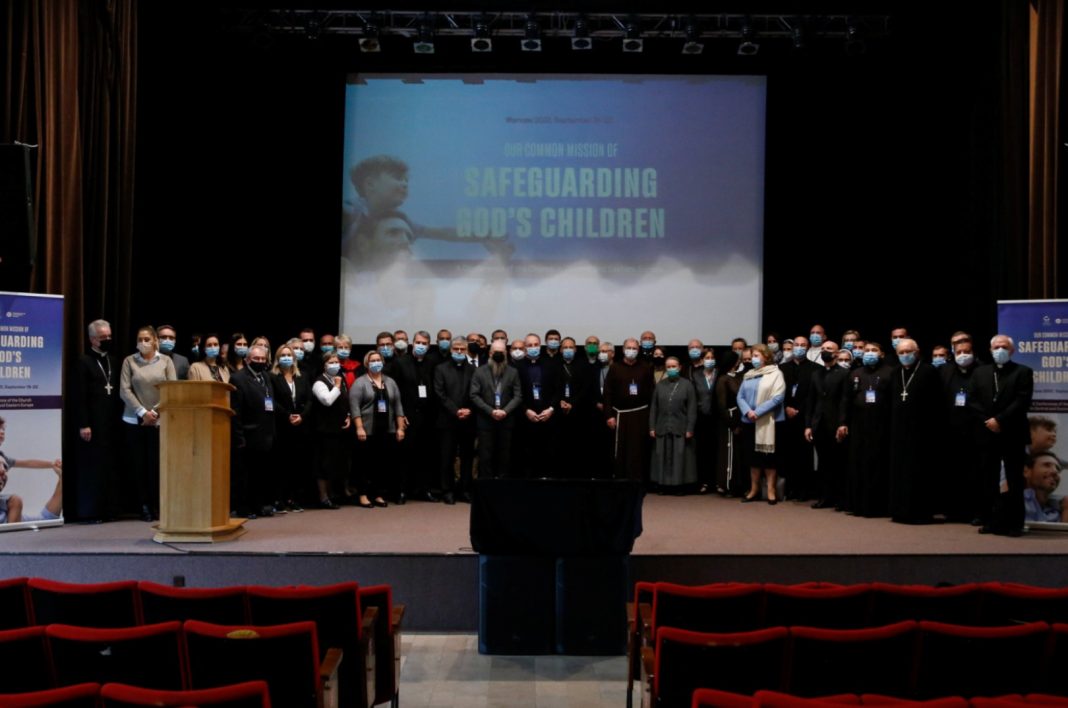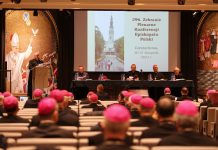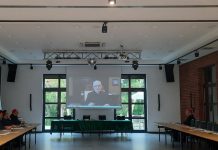The theological consequences of the sexual abuse of minors by clergy were discussed on the third day of the international conference “Our Common Mission of Safeguarding God’s Children” in Warsaw. Its participants also shared experiences about the practice of protecting minors in various countries of Central and Eastern Europe.
During the morning Mass, Bishop Gjergj Meta of Albania emphasized the maternal dimension of God’s mercy. Referring to the experience of women in his homeland, he said that they are ready to endure many humiliations and violence, but they themselves react violently when their children are harmed. May the Church be able to bear all persecutions in this way, as a mother who loves all her children, especially the smallest ones, the Albanian bishop said.
The consequences of undermining trust in priests who sexually abused minors and the inadequate reaction of Church authorities were pointed out by Father Grzegorz Strzelczyk, PhD.
He stressed that the very survival of religious communities depends, in a sense, on the proper response of Church structures to the sexual abuse of minors. He pointed out that the Church’s response to the tragedy of the sexual abuse of minors by priests usually focuses on legal, psychological, and spiritual aspects. Theological reflection remains in the shadows, but seems essential to understand it fully.
The theologian pointed out the different levels of scandal when trust in a cleric who has sexually abused a minor has been shaken, when the informed structure of the Church has reacted inappropriately, or when there has been a lack of acknowledgement of guilt, a clearly spoken apology and redress of damage.
In this context, he emphasized that the Church, which proclaims the reconciliation given to people in Christ, can only be credible if, in the face of great evil, it is capable of repentance, which should lead to an authentic and profound change in people.
The speaker also pointed out the need to rethink the theology of Church governance, so as not to act like corporations caring only for their image.
During the meeting, participants also became acquainted with hopeful signs – examples of the Church’s work in Central and Eastern Europe in the prevention of the abuse of minors and assistance to victims of these crimes. The activities of the Center for Fostering the Wellbeing of Vulnerable Persons of the Croatian Catholic University in Zagreb were presented. Marek František Drábek, a Norbertine from the Czech Republic, spoke about his media and pastoral work, Sister Judit Szentes from Hungary pointed out the positive cooperation in this field with the state authorities in her homeland, Father Adam Żak SJ presented the activities of the Church in Poland for the benefit of victims, prevention, and work with the perpetrators of these crimes, and Sister Agnieszka Ewa Jarkowska acquainted the participants with the activities of the Church in Slovakia in this field.
Meetings in small groups served to deepen the reflection and to outline prospects for cooperation.
The conference will conclude tomorrow.

 Polski
Polski







